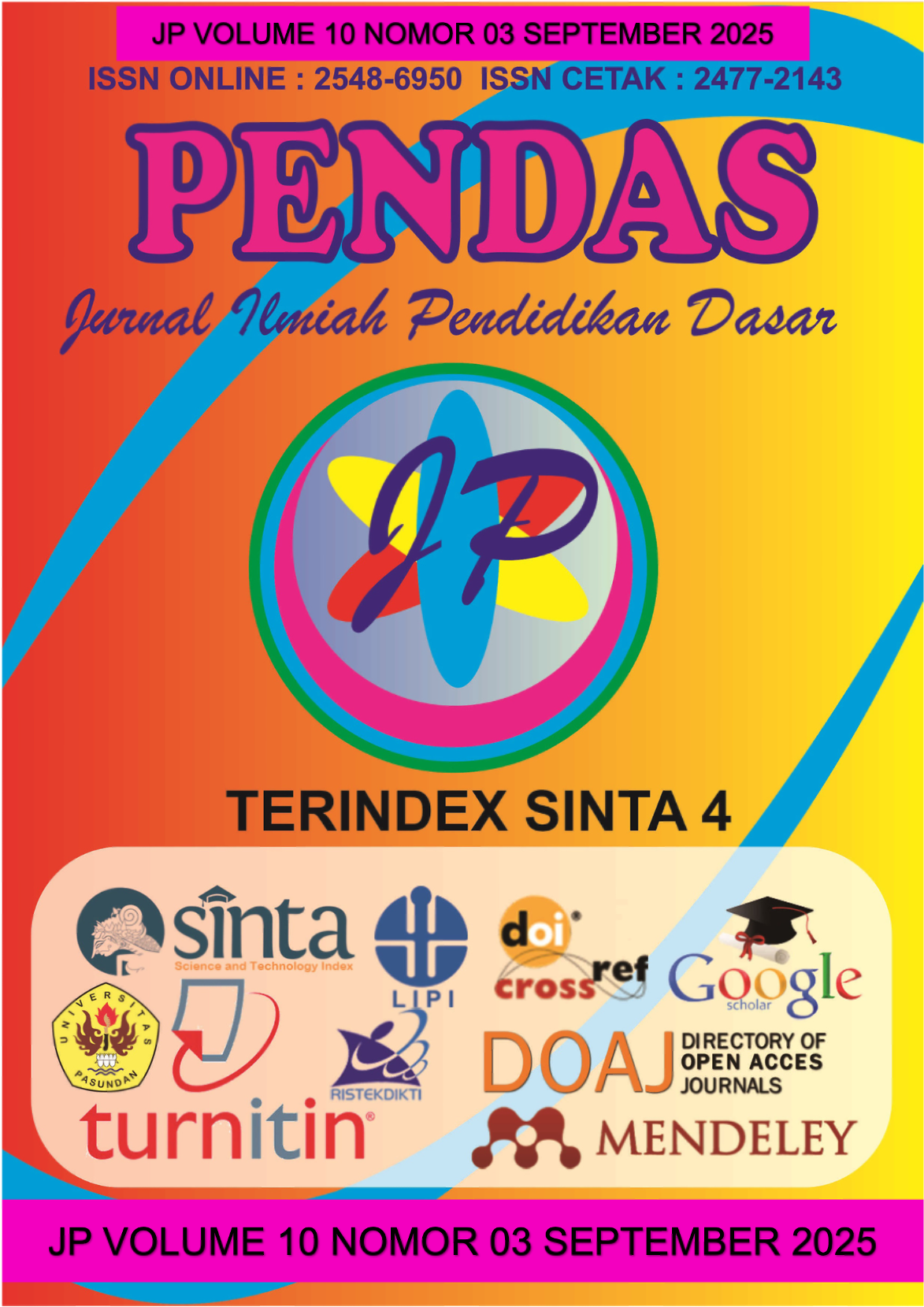ANALISIS PERILAKU SISWA DI LINGKUNGAN SEKOLAH KELAS XI SMA ADABIAH 2 PADANG
DOI:
https://doi.org/10.23969/jp.v10i03.32515Keywords:
Student behavior, school discipline, Adabiah 2 High School, PadangAbstract
This research is motivated by the low level of student discipline at Adabiah 2 High School in Padang, characterized by lateness to school, incomplete attributes, truancy, and unexcused absences (alpha). This indiscipline negatively impacts student academic achievement, the learning process, and the classroom atmosphere. The purpose of this study is to analyze the behavior of eleventh-grade students, particularly in grades XI Phase 4 and XI Phase 9, in relation to forms of school discipline violations. The study used a descriptive qualitative method with data collection techniques through observation, interviews, and document studies. Informants were selected purposively, consisting of homeroom teachers, guidance counselors, and students. Data were analyzed using the Miles and Huberman model through the stages of collection, reduction, presentation, and drawing conclusions. The results showed that student tardiness was generally influenced by internal factors such as the habit of playing with gadgets until late at night and lack of parental control. Incomplete attributes were caused by low awareness of school rules, while truancy and alpha behavior were related to low learning motivation and the influence of the social environment. The impact of this behavior not only decreases learning outcomes but also disrupts the effectiveness of learning and the classroom atmosphere. This research emphasizes the important role of teachers, parents, and schools in instilling discipline and creating a conducive learning environment.
Keywords: Student behavior, school discipline, Adabiah 2 High School, Padang
Downloads
References
Abdussamad, Z. (2021). Metodologi
penelitian pendidikan. Jakarta:
Prenada Media.
Arikunto, S. (2013). Prosedur
penelitian: Suatu pendekatan
praktik. Jakarta: Rineka Cipta.
Handayani, N., dkk. (2023). Psikologi
pendidikan. Bandung: Alfabeta.
Hasbullah. (2012). Dasar-dasar ilmu
pendidikan. Jakarta: Raja Grafindo
Persada.
Hilgard, E. R., & Bower, G. H. (dalam
Handayani, N., dkk., 2023).
Psikologi pendidikan. Bandung:
Alfabeta.
Husein, U. (2013). Metode penelitian
untuk skripsi dan tesis bisnis.
Jakarta: Rajawali Pers.Laia, T. (2024). Kesejahteraan
psikologis di sekolah dan
pembentukan karakter siswa.
Jurnal Pendidikan Karakter, 12(1),
45–56.
Mamonto, S., dkk. (2023). Disiplin
dalam pendidikan. Yogyakarta:
Deepublish.
Moleong, L. J. (2008). Metodologi
penelitian kualitatif. Bandung:
Remaja Rosdakarya.
Moleong, L. J. (2010). Metode
penelitian kualitatif (edisi revisi).
Bandung: Remaja Rosdakarya.
Musaheri. (2011). Filsafat pendidikan.
Yogyakarta: Ar-Ruzz Media.
Nurfirdaus, N., & Sutisna, A. (2021).
Lingkungan sekolah dalam
membentuk perilaku sosial siswa.
Jurnal Pendidikan Dasar, 12(2),
112–120.
Razak, A., dkk. (2019). Psikologi
remaja. Jakarta: Kencana.
Salim. (2015). Pendidikan karakter
bangsa. Jakarta: Rajawali Pers.
Saputri, D. (n.d.). Tindakan sosial
dalam perspektif Max Weber.
Jurnal Sosiologi. Diakses 12 Mei
2025, dari https://ejournal-sosiologi
Setiawati, S. M. (2020). Perilaku
membolos: Penyebab, dampak,
dan solusi. Jurnal Psikologi
Pendidikan, 5(1), 77–85.
Sugiyono. (2011). Metode penelitian
kuantitatif, kualitatif, dan R&D.
Bandung: Alfabeta.
Supraja, M. (2015). Sosiologi klasik.
Jakarta: Kencana.
Sujarweni, V. W. (2014). Metodologi
penelitian: Lengkap, praktis, dan
mudah dipahami. Yogyakarta:
Pustaka Baru.
Sukmadinata, N. S. (2009). Metode
penelitian pendidikan. Bandung:
Remaja Rosdakarya.
Tuhosokhi, L. (2024). Kesejahteraan
psikologis di sekolah dan
implikasinya terhadap
pembentukan karakter siswa.
Jurnal Ilmu Pendidikan, 14(2), 88–
97.
Yulianto, R. (2024). Tindakan sosial
dalam perspektif Weber. Jurnal
Sosiologi Modern, 10(1), 15–27.
Downloads
Published
Issue
Section
License
Copyright (c) 2025 Pendas : Jurnal Ilmiah Pendidikan Dasar

This work is licensed under a Creative Commons Attribution 4.0 International License.














































